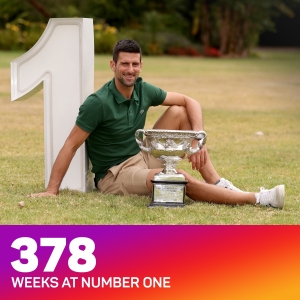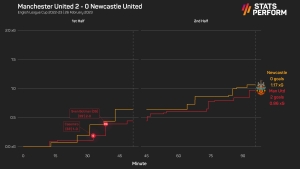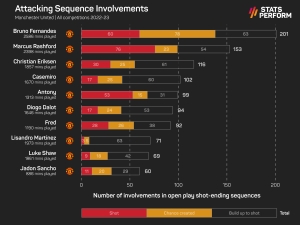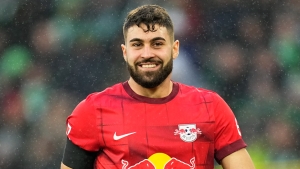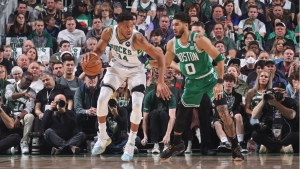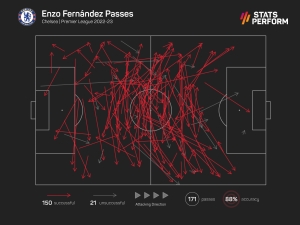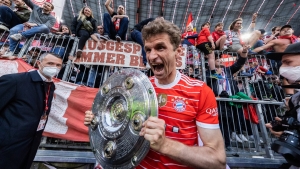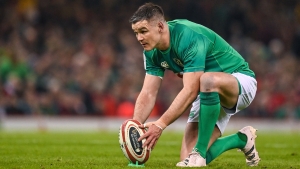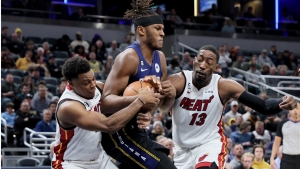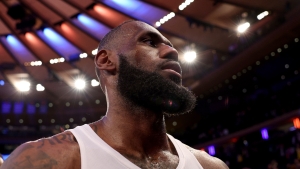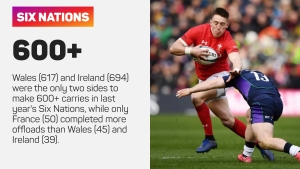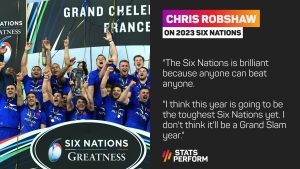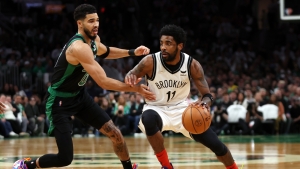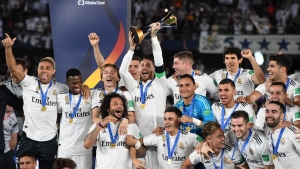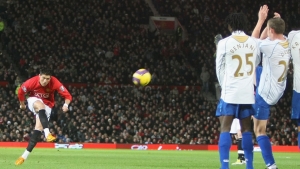The 2022 Six Nations may have proved to be a battle between the haves (France and Ireland) and the have-nots (England, Scotland, Wales and Italy), but this year's tournament is expected to be a far tighter affair.
France ended a 12-year wait for the title last time around, while claiming a record-equalling fourth Grand Slam, and they will fancy their chances of coming out on top again this year ahead of hosting the Rugby World Cup in September.
Ireland, who narrowly missed out to Les Blues 11 months ago, will have plenty to say about that as they look to continue building the momentum that saw them record a famous series win over New Zealand and climb to the top of the world rankings.
Both nations, ranked as they are as the world's top two as we edge closer to the World Cup, will very much have a target on their backs as the other contenders look to lay down a marker.
It is a time of change for England and Wales, who have brought in Steve Borthwick and Warren Gatland respectively on the back of disappointing campaigns last time out, with this year's Six Nations representing a first opportunity to see their sides in action.
While Italy would often be a side note heading into the competition – justifiably given they have finished bottom in each of the past seven editions – they ended a long-running winless streak with victory over Wales last year, which they followed up with a win against Australia three months ago.
And don't forget Scotland, who themselves came close to a historic win against New Zealand in November and finished level on points with fierce rivals England in last year's Six Nations.
Unfavourable fixtures for France
France are looking to do something not achieved since England in 2017 in retaining the Six Nations title, while not since 1998 – prior to Italy joining to make it a six-team tournament – has a nation won successive Grand Slam crowns, with Les Blues themselves the last to do so.
Despite being reigning champions and in great form with 13 wins in a row, even those with strong French ties are wary of the threat a strong Ireland side pose.
"I don't want to downplay it at all, but we're not the best team in the world – Ireland are, and that's just a fact," 47-cap former France international Ben Keyser told Stats Perform.
"We are title holders, but we've fallen on our faces previously when we've entered the tournament as favourites. This year we've got to go to Ireland and England, so it's going to be a really tough year for France."
That trip to Irish capital Dublin in the second round may yet prove to be a showdown for the championship, as it was last year when the only blemish for Andy Farrell's men was a defeat in Paris.
It must be remembered, however, that Ireland were also top of the world rankings heading into the 2019 World Cup, when they suffered defeat to Japan in the pool phase before being knocked out by New Zealand in the quarter-finals.
'Wales way behind'
Before thoughts can turn to that huge match with France, and indeed the World Cup even further down the line, Ireland first have an away trip to Wales in what will present a chance to lay down a marker in their bid to land a first Six Nations title since 2018.
On the back of Gatland's shock return as Wales boss following the sacking of Wayne Pivac, though, all of a sudden Saturday's curtain-raising clash at the Principality Stadium looks nowhere near as clear-cut to predict.
"A month or two ago I'd have said that's going to be a tough one because it's Cardiff, but Wales are in a bit of disarray and it's hard to see how they're going to beat this Ireland," former Ireland and British and Irish Lions hooker Rory Best told Stats Perform.
"But all of a sudden there's a change at the helm and all of a sudden you're a lot more worried about this game in Cardiff. You know their style of play and you know Gatland will make them hard to beat. That makes this a potential banana skin for Ireland."
Former Ireland boss Gatland needs no introducing, having won the Six Nations four times during his previous 12-year stint in charge of Wales, three of those as Grand Slam winners.
Indeed, he has been involved in 60 Six Nations games during his time with Ireland and Wales, which is the same tally as the other five head coaches in this year's championship combined.
That experience and ability to get the best out of a squad will come in handy for Wales as they attempt to recover from a terrible 2022 that saw them lose at home to Italy and Georgia.
Making the leap from fifth to first is likely to be out of the question, but exactly what would represent a positive campaign for Wales with one eye on the upcoming World Cup?
"Third. Coming third would be good," Wales great and former skipper Sam Warburton told Stats Perform. "That sounds really defeatist because normally you'd always aim to win it, or finish second, but I'm being realistic.
"Ireland and France are putting on displays which have had four or five years of groundwork. Wales are coming into the tournament not entirely fresh, but pretty close to that. So naturally they're way behind where those teams are in their cycle."
Borthwick to get the best out of England?
Finishing third would be a case of 'best of the rest' when up against the world's top two sides, but recently appointed England head coach Borthwick will quietly be hoping to challenge for the title.
Unlike Gatland, this will be Borthwick's first taste of Six Nations action as a head coach, though he did play 25 times in the championship as a player, 10 of those as captain of his country.
While Eddie Jones' tenure turned sour, his sacking on the back of a tough autumn campaign still came as somewhat of a surprise, but the now-Australia boss still departed with the best record of any England head coach.
Indeed, Jones won the Grand Slam in his first Six Nations campaign in charge in 2016, so there is recent precedent there for Borthwick – who previously worked as Jones' right-hand man – to follow.
In the view of former captain Chris Robshaw, the Red Rose have plenty to be optimistic about with Borthwick at the helm.
"Steve coming in is a brilliant appointment," Robshaw told Stats Perform. "You just look at the team he's created around him, such as Kevin Sinfield in defence, and the change in mindset.
"I think they've got a fantastic team and a group that's in a nice age bracket, with a couple of younger players who can add some spark and bring some life back into the side. What I'm seeing and hearing are good messages with a lot of excitement."
'Toughest Six Nations yet'
Not for the first time, Scotland head into the Six Nations with a rather big question mark over their head. As ever, consistency will be the key if they are to better last year's fourth-place finish.
The additions of Ben Healy and Ruaridh McConnochie, who previously represented Ireland and England respectively, will provide some welcome depth for Gregor Townsend to choose from in possibly his final campaign in charge.
Both men may feature in a blockbuster opener for Scotland at Twickenham, where they picked up a first win since 1983 on their most recent visit, albeit with that game held behind closed doors due to the coronavirus pandemic.
Saturday's Calcutta Cup contest may well provide a better indication of exactly what the aim is for Scotland this time around.
"You never really know what to expect from them and that's exciting," Robshaw added. "That's why the Six Nations is brilliant, because anyone can beat anyone. It's why every day you have to be on it; if you're not you lose a game by the bounce of a ball and all of a sudden you're playing catch up.
"I think this year is going to be the toughest Six Nations yet. I don't think it'll be a Grand Slam year."
Robshaw will certainly not be alone in predicting a non-Grand Slam year, with teams expected to take points off each other, but what about at the other end of the table?
Perennial Wooden Spoon 'winners' Italy have finished bottom in every edition since 2016, but their aforementioned wins over Wales – ending a 36-game losing run in the competition – and Australia last year sent out quite the message.
Having avoided losing all five games for the first time in seven years last time around, the aim for the Azzurri now is to finish above one of the other five nations.
It all paves the way for what could be the best Six Nations in a number of years – certainly since the most recent World Cup – as new eras begin and some perhaps edge towards their pinnacle ahead of the Rugby World Cup in seven months' time.























